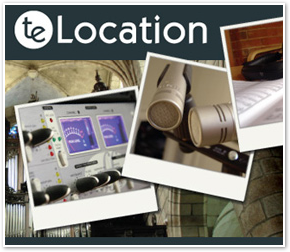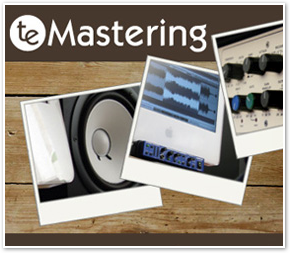




Stuff to Share is our studio blog featuring industry news, equipment reviews, production tips from our engineers and other useful music-related links, enjoy!



© Tenth Egg Productions 2009


music mastering

Tips and tricks from our engineers to help you with your music making


Industry news, useful links and what’s going on at Tenth Egg





Thought : Finding the Right Studio
07/04/09




Share us with your friends

A different approach to music production.

No matter how comprehensive your project studio setup, there will always be some production situations where it makes sense to use a commercial facility, either to access particular equipment, tap into the expertise of a professional engineer or take advantage of the acoustics of a particular venue. In this tip we're going to provide you with a simple guide to finding the right studio for your project.
Tracking drums is a good example where, perhaps you only record them a handful of times a year, but yet you suddenly need six more inputs on our soundcard a bunch of specialist mics and a handful of extra cables and stands, not to mention some understanding neighbors. In this instance hiring in the extra equipment needed or visiting a local studio can work out cheaper than buying, insuring and maintaining the stuff yourself and you don't have to worry about storing all that gear the rest of the year round.
When it comes to picking a studio there are some simple things to consider:
Equipment selection: Of course budget is going to play a big part in narrowing your studio selection, but the equipment available is pretty crucial and will ultimately affect the quality of your recording. Don't just go by the pictures on the website, they may be out of date or even just stock photography try and find the equipment list, and if there isn't one, phone up and ask. You shouldn't just look out for quality gear, but also a setup that is going to fit in with your own workflow. So if you're using ProTools as your audio software of choice, it makes sense to find a studio that offers the same.
What kind of studio is it?: When narrowing down your selection it's worth doing a little googling around to check their reputation. Don't be put off by the odd negative review, but try find out what, if anything, people are saying about them, are they particularly good for your style of music? Asking for suggestions on a local music discussion board can work well, but there's nothing better than a word of mouth recommendation from someone you know. It's also pays to give them a call or drop them an email about your project asking a couple of questions; if their setup matches your project, they've been around for a couple of years with some good feedback and they get back to you quickly and are helpful on the phone, that's usually an indication of a good studio.
Of course the best way to judge if a studio is right for you is to book a test session. In the case of mastering this might involve sending in a single track from your project and seeing what comes back. Or for recording, you might book in a couple of hours to do some pre-production work.
Logistics: Can you get there? When are they open? Is their studio time available when you need it? And of course, budget: Be sure to check if there are any extra costs on top of the per-hour rate. Some studios will charge up to £20 just to burn a data disc with your material on it. If you need access to specific equipment, make sure that that's included in your quote and that it will definitely be available on the day. If your project isn't time sensitive then look out for downtime / last minute booking discounts.
Learning from the professionals:
One of the big benefits of using a commercial facility is the opportunity to learn from tehe in-house engineers. By watching how they place mics, apply processing and by asking the right questions you'll walk away not just with some great recorded / mixed material but also a load of tips and tricks that you can apply in your own studio. Most engineers love to talk about how their approach to production and will be happy to share their knowledge, especially if prompted with a little flattery.
On the orchestra side of things you need to think a bit more laterally, look for recital spaces, churches or school halls, most of which you'll have the option to visit ahead of the recording date. The key things to look out for besides acoustics are easy access for your equipment, low background noise levels, plenty of power sockets and that extras such as chairs and music stands are available (and at what cost?).
Complementing your own setup with the use of commercial facility can give you access to equipment you could never afford, engineering expertise it would take years to develop and also prove to be an all round fun experience giving your project that extra boost!



AllStudios.co.uk is a great online directory of rehearsal, recording and mastering studios in the UK, allowing you to filter results by location, rates and equipment selection. It also lists the latest downtime offers


Free Studio Time:
Many audio engineering colleges / universities offer free or heavily discounted studio time so that students can practice their engineering skills.
Leading colleges, such as Alchemea based in London (pictured right) can even be better equipped than a lot of commercial studios.
Finding a space:
Maybe you're happy with your equipment setup, but not your studio space, after all some projects just aren't practical in a home environment. Probably you won't fit an orchestra in your living room, and even though a string quartet will, you might find that the acoustics just don't suit, or in the case of a band, it's simply too noisy.
Many studios will hire out their live rooms separately as rehearsal space, which can be a great solution, but dedicated rehearsal space can also work well too. Let the studio know what you'll be up to as they can help you select the best room (acoustically and for sound isolation) and you may even be able to strike a deal and hire two adjacent rehearsal rooms at a discount rate, using one as a live room and the other as a control room.

Build your dream studio at FX Rentals:
FX Rentals have devised a new model in studio booking, where you can book an empty studio (save for a high quality monitoring system) complete with live room, and then fill it with your own equipment or anything from their vast rental collection at a massively reduced rate.






Share us with your friends

